Assoc. Prof. Frances Clarke and her collaborator Assoc Prof. Rebecca Jo Plant (University of California, San Diego) received the Carol Gold Prize for the best article published in a peer-reviewed journal in 2018 by an academic at mid-career or above level, given out by the American Historical Association’s Coordinating Council of Women Historians.
Many congratulations to Senior Lecturer Thomas Adams, who will be spending November 2018-July 2019 as a fellow at the International Research Center for Work and Human Lifecycle in Global History at Humboldt University, Berlin.
Many congratulations to Miranda Johnson, whose book This Land is Our History, was shortlisted for the W.K. Hancock Prize, given out by the Australian Historical Association. The biennial W.K. Hancock Prize recognises and encourages an Australian scholar who has recently published a first scholarly book in any field of history. The W.K. Hancock Prize was instituted in 1987 by the Australian Historical Association, to honour the contribution to the study and writing of history in Australia by Sir Keith Hancock. Since his death in 1988, it has served to commemorate his life and achievements.
Many congratulations to Dr. Sarah Claire Dunstan on her two year postdoctoral Fellowship with the Leverhulme Trust. She will be working at the University of Sussex in the UK.
In May, Sydney University History Department Alumna Dr. Lizzie Ingleson has won one of ten early career researchers Travelling Fellowships for 2018, awarded by the Australian Academy of the Humanities.
Many congratulations to current PhD student, Darren Smith, for winning the prestigious Hakluyt Society Essay Prize competition, for his essay: ‘Ex Typographia Savariana: Franco-Ottoman relations and the first oriental printing press in Paris’.
The Laureate Research Program in International History at the University of Sydney is pleased to note the following good news: Beatrice Wayne, postdoctoral fellow in the Laureate program, has won a three year lectureship at Harvard in the Literature and History program; Marigold Black, recent History PhD, and JRF in the Laureate Research Program in International History, has won a three-year research fellowship at ANU working with the Australian Defence Forces on Strategic Issues; and Glenda Sluga was a successful co-applicant in a European Research Council funded project with Stockholm Royal Institute of Technology on the Rise of Global Environmental Governance.
History at the University of Sydney was recently ranked 26th in the world (and 2nd in Australia after ANU) by the QS World University Rankings by subject, sharing a 5 star rating with the top twenty history departments.
Congratulations to recent PhD student Sarah Bendall who was awarded a Bodleian Library Visiting Research Fellowship at Oxford University. as well as a Folger Shakespeare Library Fellowship.
Many congrats to recent Sydney University History Department PhD recipient Liz Ingleson on earning a prestigious and highly competitive two-year postdoc fellowship at Southern Methodist University’s Center for Presidential History. Many congrats and warm wishes for the coming year or two.
Congratulations to Ben Silverstein, winner of the History Australia and Taylor & Francis best article for 2017. You can read Ben’s article online now: ‘Possibly they did not know themselves’: the ambivalent government of sex and work in the Northern Territory Aboriginals Ordinance 1918

Month: December 2018
Book News and Reviews 2018
Senior Lecturer Thomas Adams, along with Matt Sakakeeny, are pleased to note that their edited collection, Remaking New Orleans: Beyond Exceptionalism and Authenticity will be available from Duke University Press in early 2019. https://www.dukeupress.edu/remaking-new-orleans
Professor Michael A. McDonnell, along with Associate Professor Kate Fullagar at Macquarie University, published a new edited collection in November with Johns Hopkins University Press, entitled Facing Empire: Indigenous Experiences in a Revolutionary Age. https://jhupbooks.press.jhu.edu/content/facing-empire. A blog about the book appeared late last year at the Age of Revolutions blogsite: https://ageofrevolutions.com/2017/11/29/facing-empire-indigenous-experiences-in-a-revolutionary-age/
“Expansive,” “deft,” “lively,” “cogent and powerful,” and “essential reading” – just some of the praise for Miranda Johnson’s book, This Land is Our History: Indigeneity, Law, and the Settler State, in a new review for H-Environment.
Congratulations to recent PhD recipient Billy Griffiths on the publication of Deep Time Dreaming: Uncovering Ancient Australia, which investigates a twin revolution: the reassertion of Aboriginal identity in the second half of the twentieth century, and the uncovering of the traces of ancient Australia. The book explores what it means to live in a place of great antiquity, with its complex questions of ownership and belonging. Billy will launch his book in Sydney at a special event at Gleebooks on Thursday 15 March 2018, 6:30 pm: “In conversation: Billy Griffiths discusses his book Deep Time Dreaming: Uncovering Ancient Australia with Professor Iain McCalman” For further information and tickets, click here.
A “dazzling work of microhistory.” Professor Chris Hilliard’s latest book The Littlehampton Libels is reviewed in the London Review of Books.

Faculty Teaching Excellence Awards
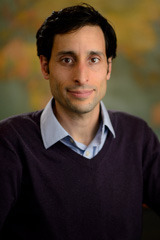
Many congratulations to our most recent recipient of a Faculty Teaching Excellence Awards – Andres Rodriguez. The award was presented by the Dean Annemarie Jagose at a ceremony on October 31, 2018 at MacLaurin Hall at the University of Sydney, along with other recipients from across the Faculty.
Dr. Rodriguez received a Teaching Excellence Award primarily for his outstanding work in developing a suite of new Chinese History units, and also his sensitive and thoughtful approach to teaching the modern history of China.
The Faculty of Arts and Social Sciences Teaching Excellence Awards program is designed to recognize and reward the teaching excellence of staff at all career levels, to encourage teachers to engage in reflective teaching practices, and to promote and support the development of high quality and innovative teaching.
Recipients have demonstrated an evidence informed approach to critical reflection on teaching and learning, evaluation of their teaching practice, engagement with higher educational research, and a focus on improving student learning.
One of Dr. Rodriguez’s nominees wrote: “I am delighted to have the opportunity to write this statement in support of Andres Rodriguez’s nomination for a FASS teaching award. Andres’ reputation as a teacher of extraordinary talent, energy and generosity has been firmly established during the years he has been employed at this university….Andres has remarkably high student satisfaction ratings in his units on Chinese history – a success that has contributed significantly to improved enrolments and retention of students in this field….many colleagues have noted just how generous, helpful, supportive and creative Andres proved to be as a colleague and co-teacher. He is always happy to talk about teaching, and more than generous in sharing insights and resources with both junior and more senior colleagues. Thoughtful, diligent, inventive, caring, lively, and manifestly dedicated to the interests of his students, he is a teacher to celebrate and reward.”
Dr. Rodriguez was also asked to make a short speech about his teaching to the gathering:
“I am a specialist in modern China who has had the privilege of leading hundreds of students on their journey to make sense of a very complicated history of China in the twentieth century.
At Sydney Uni I have students from all sorts of backgrounds, many of them eager to break out of their Eurocentric shell and ready to understand the world from a very different perspective.
I should also note that many of my students are Chinese, who openly tell me that they are curious to see how Western societies see China and how their history is taught in a place like Australia.
This rich diverse student body makes each semester a unique learning experience for all of us in the classroom.
Chinese students with personal ties to the region might share unique memories of family histories that are aligned with the broader themes we discuss in class. Students from other disciplines such as archaeology or classics also bring their own particular understandings of what comprises ‘evidence’ to classroom discussions.
How does one go about in bringing these experiences into the classroom? And how can we create the space for those who are not inclined to speak in class or perhaps lack the confidence as non-native speakers of English? After all, there is no effective student learning if we cannot hear the voice of the student.
I took it upon myself to find a way that would allow students to express what was going on in their minds as they began to prepare for our weekly tutorial. As I am sure many of you here will agree with, sometimes we can obtain results with simple yet meaningful changes in our teaching. This meant reconceptualizing the tutorial as a meeting that begins when students sit down to read and prepare for each weekly session rather than when the clock in the classroom says so. Together with Bec Plumbe we designed a simple platform allowing students to submit any meaningful thoughts, reflections, or comments on what they had encountered in their readings.
The response was overwhelming – intellectual curiosity had been unleashed as students sent me new sources they had found after a particular theme caught their attention
Chinese students ventured into their own wartime family histories or drew upon their own cultural backgrounds which I would then address in class and ask if they were willing to elaborate on for their classmates.
I too would highlight comments in class that I found particularly meaningful, each of these were helpful in drawing out what we would discuss as a class each week.
Creating a space for students that allows them to listen to their voice, and to each other’s voices is a meaningful way to help them understand how they relate to the world, and to learn about who they are. You will no doubt recognise in these words the trappings of cultural competence, a key skill that helps students to acknowledge and respect the rich diversity of our world.
In these days of anger that shake the world at so many levels, I hope my contribution to the learning experience of my students will help dispel the clouds of hatred and racism that are now gathering over our horizons.
Dr Andres Rodriguez
Lecturer in Modern Chinese History
School of Philosophical and Historical Inquiry
The University of Sydney
China Book Review Editor for Asian Studies Review
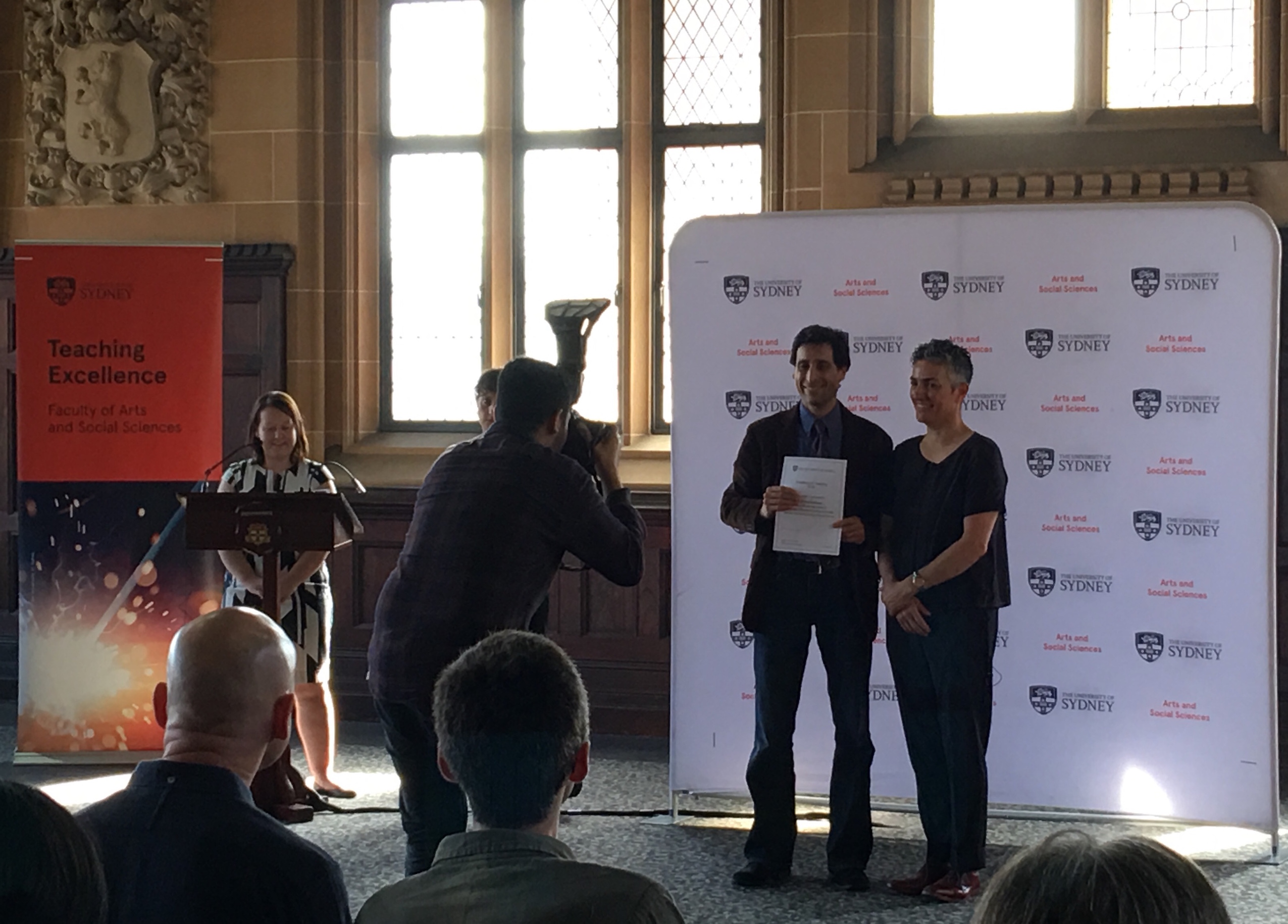
Promotions in 2018
The Department of History is pleased to announce the following promotions in 2018. Many congratulations to all – this is well-deserved recognition for the remarkable teaching, research, and service contributions made by each.
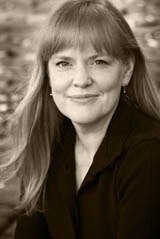
Dr. Hélène Sirantoine was promoted to Senior Lecturer
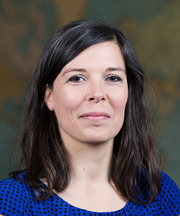
Dr. Peter Hobbins was promoted to Senior Lecturer
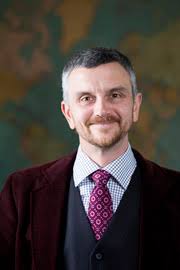
Dr. Thomas Adams was promoted to Senior Lecturer
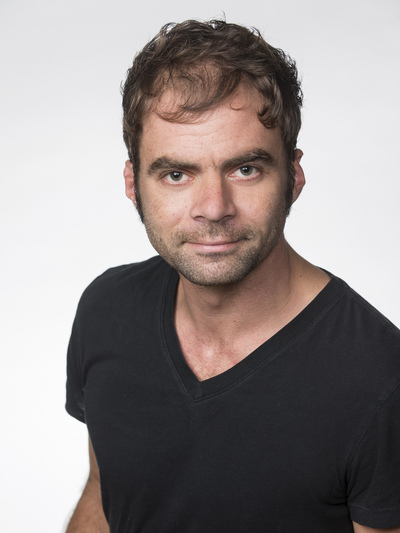
Recent Postgraduate Completions
Dear Colleagues
Please join me in congratulating the following Department of History postgraduates who have all had their Phd and MA theses passed in 2018. This is a wonderful achievement.
Sarah A. Bendall, ”Bodies of Whalebone, Wood, Metal, and Cloth: Shaping Femininity in England, 1560-1690′ (PhD)
Michaela Cameron, Stealing the Turtle’s Voice: A Dual History of Western and Algonquian-Iroquoian Soundways from Creation to Re-creation (PhD)
Sarah Dunstan, ‘A Tale of Two Republics: Race, Rights, and Revolution, 1919-1963’ (PhD)
Rollo Hesketh, ‘In Search of a National Idea’: Australian Intellectuals and the ‘Cultural Cringe’ 1940-1972 (PhD)
Rosemary Hordern Collerson, ‘The Penitential Psalms as a Focus Foint for Lay Piety in Late Medieval England’ (MA)
Kim Kemmis, ‘Marie Collier: A life’ (PhD)
Georgia Lawrence-Doyle, ‘Unmasking Italy’s Past: Filming Modern Italy through la commedia all’italiana,’ (PhD)
Tiger Zhifu Li, ‘Dancing with the Dragon: Australia’s Diplomatic Relations with China (1901-1949)’ (MA)
Qingjun Liu, ‘Reinterpreting the Sino-Japanese War: The Jin-Sui Border Region in North China, 1939-1940’ (PhD)
Christian McSweeney-Novak, From Dayton to Allied Force: A Diplomatic History of the 1998-99 Kosovo Crisis (MA)
Adrienne Tuart, ‘Discrimination and Desire: Italians, Cinema and Culture in Postwar Sydney’ (MA)
Benjamin Vine, ‘For the Peace of the Town: Boston Politics during the American Revolution, 1776-1787’ (PhD)
Kind Regards,
Sophie
SOPHIE LOY-WILSON | Lecturer
Department of History, School of Philosophical and Historical Inquiry (SOPHI)
THE UNIVERSITY OF SYDNEY
841, Brennan MacCallum | The University of Sydney | NSW | 2006
http://sydney.edu.au/arts/staff/profiles/sophie.loy-wilson.php

MENTOR Workshop
Professor Glenda Sluga co-convened the inaugural MENTOR workshop with the Director, Culture Strategy at The University of Sydney. The very successful workshop, which was co-organised by Hollie Pich and Marama Whyte, offered women and gender diverse ECRs in the humanities and social sciences concrete advice on how best to forge a career in academia. MENTOR ran from December 5 – 7, and was attended by a group of ECRs selected from The University of Sydney and universities around Australia.
MENTOR Workshop Program
Wednesday December 5, 2018
1.00-2.00pm
Welcome Lunch and Registration
2.00-3.30pm
Workshop Opening
Associate Professor Jennifer Barrett, University of Sydney
Plenary Panel: Career Planning
Professor Barbara Caine, University of Sydney
Professor Glenda Sluga, University of Sydney
Associate Professor Jennifer Barrett, University of Sydney
3.30-4.00pm
Afternoon tea
4.00-5.30pm
Roundtable: Work/Life Balance
Dr. Anne Rees, La Trobe University
Associate Professor Clare Corbould, Deakin University
Associate Professor Sarah Gleeson-White, University of Sydney
6.00-8.00pm
Welcome Drinks at the Western Tower Balcony
SOPHI Research Quadrangle, K6.07, The Quadrangle
The University of Sydney
Thursday December 6, 2018
9.00-9.30am
Light breakfast
9.30-11.00am
Practical Session: CVs and Cover Letters
Dr. Anne Rees, La Trobe University
Dr. Gorana Grgic, United States Studies Centre
Dr. Rebecca Sheehan, Macquarie University
11.00-11.30am
Morning tea
11.30am-1.00pm
Practical Session: Job Applications and Interviews
Associate Professor Clare Corbould, Deakin University
Professor Janette Bobis, University of Sydney
Professor Lisa Adkins, University of Sydney
1.00-2.00pm
Lunch
2.00-3.30pm
Practical Session: Postdoctoral Positions
Dr. Alana Piper, University of Technology Sydney
Dr. Anne Rees, La Trobe University
Professor Glenda Sluga, University of Sydney
3.30-4.00pm
Afternoon tea
4.00-5.30pm
Roundtable: Media Engagement
Dr. Alana Piper, University of Technology Sydney
Jennifer Peterson-Ward, University of Sydney
Dr. Kiera Lindsey, University of Technology Sydney
6.00-8.00pm
Conference Dinner at The Terrace, Sancta Sophia College
8 Missenden Road
Camperdown NSW 2050
Friday December 7, 2018
9.00-9.30am
Light breakfast
9.30-11.00am
Roundtable: Beyond the Academy
Dr. Gorana Grgic, United States Studies Centre
Dr. Kate Evans, ABC Radio National
Associate Professor Susan Goodwin, University of Sydney
11.00-11.30am
Morning tea
11.30am-1.00pm
Practical Session: Grant Applications
Professor Glenda Sluga, University of Sydney
Associate Professor Julia Kindt, University of Sydney
Dr. Kiera Lindsey, University of Technology Sydney
1.00-2.00pm
Lunch
2.00-3.30pm
Practical Session: Teaching
Professor Janette Bobis, University of Sydney
Dr. Kiera Lindsey, University of Technology Sydney
Associate Professor Sarah Gleeson-White, University of Sydney
3.30-4.00pm
Afternoon tea
4.00-5.30pm
Roundtable: Building Relationships
Associate Professor Clare Monagle, Macquarie University
Professor Glenda Sluga, University of Sydney
Dr. Lucia Sorbera, University of Sydney
Workshop Close
Professor Glenda Sluga, University of Sydney
Historians in the News 2018
November 2018
Associate Professor Frances Clarke gave radio interviews on November 4, 2018 on ABC’s Nightlife on American feminist icon Susan B. Anthony, and on November 20, 2019 on 2SER’s breakfast show on the myths surrounding Thanksgiving.
Senior Lecturer Thomas Adams wrote an essay on birthright citizenship for the ABC.
October 2018
PhD student Pamela Maddock wrote an essay on gender segregation in Australian schools for ABC Religion and Ethics
Dr. David Brophy wrote an opinion piece on the Ramsay Centre controversy that was published in the New York Times
September 2018
Senior Lecturer Thomas Adams contributed an essay on judicial politics in the midst of the Kavanaugh controversy to the ABC.
PhD Student Marama Whyte published an op-ed in the Washington Post, entitled: “The media’s #MeToo problems will continue until its culture changes.”
August 2018
Professor Dirk Moses wrote a piece entitled: “Nazism, Socialism, and the Falsification of History in ABC Religion and Ethics
June 2018
Professor Penny Russell reviewed two new books focused on early Aboriginal-European relations in the Sydney region in the Sydney Morning Herald: The Sydney Wars by Stephen Gapps, The Quiet Invasion by Tim Ailwood.
Several Sydney Uni historians weighed in to the controversy surrounding the Ramsay Centre’s plan for a new Western Civilization degree. These included responses by Dirk Moses in the Sydney Morning Herald and in the ABC’s Ethics and Religion, and Warwick Anderson in the Sydney Morning Herald. Many joined a petition denouncing the Ramsay Centre’s overtures to Sydney University, reported on in the Guardian.
Historians also responded to related criticism of the History Curriculum at the University by the IPA’s Bella d’Abrera, including Chris Hilliard in the ABC’s Religion and Ethics, and one of James Dunk’s students – Hamish Wood – in his Imperialism course, who wrote in Overland.https://overland.org.au/2018/06/okay-lets-talk-about-the-west-a-students-response-to-bella-dabrera/ about his experiences.
May 2018
Clean out our own home before we cast aspersions on others, wrote recent PhD recipient Dr. Lizzie Ingleson,in an essay on political donations and foreign influence in the ABC.
Sky News interviewed Professor James Curran from the United States Studies Centre and the Department of History about current politics in North Korea and the US. News.com.au also quoted Professor Curran about payments made by US President Donald Trump to Stormy Daniels. The article was syndicated across News Corp Australia online.
NITV Online quoted Professor Mark McKenna in the Department of History about a proposed monument at Botany Bay to mark the 250th anniversary of Captain Cook’s landing in 2020.
April 2018
ABC Radio National replayed a talk by Professor Mark McKenna in the Department of History on his Quarterly Essay: Moment of Truth, History and Australia’s Future. APN News Media’s regional newspaper network and an AAP article syndicated across Yahoo!7, SBS News and Daily Mail Australia also quoted Professor McKenna about a proposed monument at Botany Bay to mark the 250th anniversary of Captain Cook’s landing in 2020.
Sky News interviewed Professor James Curran from the United States Studies Centre and the Department of History about the US’s actions towards Syria and the Trans Pacific Partnership, and more recently Sky News Live interviewed James about the historic meeting between the two Korean leaders as well as US President Trump’s potential meeting with Kim Jong Un in June.
The Conversation published an article by Dr Meredith Lake, Honorary Associate in the Department of History, about Australia’s declining biblical literacy, while ABC Radio Adelaide interviewed Dr Lake about the same subject.
Sky News interviewed Professor James Curran from the United States Studies Centre and the Department of History about the US imposing additional tariffs on Chinese goods.
Emeritus Professor Richard Waterhouse from the Department of History was interviewed on ABC Radio (Sydney, Melbourne, Brisbane, Adelaide, Gold Coast, Gippsland) about how Easter traditions have changed in Australia.
March 2018
ABC Radio Brisbane’s Focus interviewed Professor Mark McKenna from the Department of History about the Uluru Statement and recognition of Aboriginal and Torres Strait Islander peoples in the Constitution, and ABC Radio Sydney and 2SER Sydney interviewed Mark about his new Quarterly Essay, Moment of Truth: History and Australia’s Future, while the Sydney Morning Herald and Canberra Times published an edited extract of the essay. Both articles were syndicated across Fairfax Media online.
Straits Times (Singapore) mentioned Dr David Brophy from the Department of History and China Studies Centre led a submission to the Senate inquiry into the federal government’s foreign interference legislation by a group of academics with research expertise in China, as did SBS Online.
Dr David Brophy reviewed Clive Anderson’s new book Silent Invasion for the Australian Book Review, and follows up with an op-ed in the Sydney Morning Herald. In addition, 网易新闻 (China) quoted David on the same topic.
News.com.au quoted Professor James Curran from the Department of History about the resignation of White House communications director Hope Hicks. The article was syndicated across News Corp Australia online. While Sky News Live also interviewed James Curran about US gun laws and Prime Minister Malcolm Turnbull’s visit to the US, and the New York Times quoted James US and Australia’s relationship with China.
January-February 2018
KPFA Radio (US) interviewed Dr Chin Jou from the Department of History and the Charles Perkins Centre about the role of the American government in creating an abundance of fast food restaurants in low incomes areas of the US.
In early February, ABC Online quoted Dr Sophie Loy-Wilson from the Department of History about China now allowing citizens of foreign countries with Chinese heritage to apply for a special five-year multiple entry visa.
Professor Shane White reviewed the latest book from Ta-Nehisi Coates, on America’s racism, in the Sydney Morning Herald on Australia Day. The article was syndicated across Fairfax Media online.
“What does justice mean in a settler-colonial society?” In January, Senior Lecturer Miranda Johnson weighed in on the debate over Australia Day on Ozy. Dr. Johnson also talked about the symbolism of Jacinda Ardern’s pregnancy announcement with The Age.
Weekend Australian published an article by Professor James Curran from the Department of History and the United States Studies Centre about a new biography of former Prime Minister John Curtin, John Curtin’s War Volume 1: The Coming of War in the Pacific, and Reinventing Australia by John Edwards. Australian Financial Review also published an article by Professor Curran about the “Quadrilateral Security Dialogue” that brings together the United States, Japan, India and Australia. ABC NewsRadio also interviewed Professor Curran about US President Donald Trump’s first year in office while Sky News interviewed him about US President Donald Trump’s State of the Union Address.
SBS World News, News.com.au, Mamamia, Central News, Yahoo!7 News quoted Dr Ben Silverstein from the Department of Indigenous Studies about the impact of changing the date of Australia Day in the light of Mark Latham’s ad to save the date.

Articles, Essays, and Presentations 2018
Dr Sarah Bendall, who recently completed her PhD, shows the value of historical reconstruction and the importance of contextualising historical comments on dress in her newly published article titled “‘Take measure of your wide and flaunting garments’: The farthingale, gender and the consumption of space in Elizabethan and Jacobean England” [https://onlinelibrary.wiley.com/doi/10.1111/rest.12537] in Renaissance Studies, available as a read-only copy on desktop.[https://rdcu.be/baiAF]
Rohan Howitt, a PhD student in the Department published an article entitled ‘The Japanese Antarctic Expedition and the Idea of White Australia’ in the November 2018 issue of Australian Historical Studies, and is available at the following link: https://www.tandfonline.com/doi/full/10.1080/1031461X.2018.1509881
Professor Mark McKenna published a feature-length Quarterly Essay in the March issue, entitled: Moment of Truth: History and Australia’s Future.
Newly minted History PhD James Findlay recently featured in the Australian Historical Association’s Early Career Researcher’s blog site.
Sarah Dunstan, who recently completed her History PhD, also edits the Journal of the History of Ideas Blog. She recently spoke with Professor Stefanos Geroulanos about his latest book Transparency in Postwar France: A Critical History of the Present (Stanford University Press, 2017).
Newly minted-PhD Michaela Cameron contributed another biographical essay on an early female first fleeter, “Betty Eccles: The Dairy Maid (1730-1835)” as part of her ongoing and funded St John’s Cemetery Project.
PhD student Emma Kluge reflects on lessons learned on her recent research trip to PNG.
Dr. Sophie Loy-Wilson shared her advice for professionalisation during your PhD, based on a 2017 plenary talk she gave at the University of Sydney Postgraduate History Conference on the Australian Women’s History Network blogsite.
PhD student Tamsin O’Connor published an article entitled, “Charting New Waters with Old Patterns: Smugglers and Pirates at the Penal Station and Port of Newcastle 1804–1823” in a special edition of the Journal of Australian Colonial History entitled “Colonial Newcastle: Essays on a Nineteenth Century Port and Hinterland,” guest edited by Nancy Cushing, Julie McIntyre and David Andrew Roberts, Vol. 19 (2017), pp 17- 42.
Dr Peter Hobbins reflected on the fraught process of integrating imagination with empirical evidence in a blog post for the Professional Historians Association of NSW & ACT.
Professor Michael A. McDonnell wrote about the simple digital humanities tool he created from some recent research work that allows students to analyze historiographical trends in the flagship journal of early American history, the William & Mary Quarterly, entitled “Historiographical Revolutions in the Quarterly: From Research to Teaching,” at The Panorama.
The University of Chicago Press’s journals division has launched a site devoted to new History scholarship. Dr John Gagné’s article in I Tatti Studies in the Italian Renaissance is that journal’s featured essay, and is available via open access until mid-May 2018.
PhD student Marama Whyte weighed in on The Conversation in January about the the historical – and ongoing – battle for equal pay in the media. The essay was republished in various other places, including Mumbrella, Australian Business, and the Daily Bulletin.
PhD student Emma Kluge reminds us that slavery is not yet history. See her January blog.
The History of Science Society’s newsletter recently reported on the REGS team’s panel at the American Historical Association conference earlier this year. Miranda Johnson spoke, along with Sarah Walsh, Sebastián Gil-Riaño, and Ricardo Roque. Warwick Anderson served as chair.
A report on the recent workshop on the Global history of Natural Resources co-organized by the Laureate Research Program in International History in December 2017 can be found on the Past and Present website, a useful resource for the state of the art thinking on environmental history.
The December 2017 issue of the American Historical Review features a lead essay in a special forum on Banking and Finances in the Modern World by Professor Glenda Sluga entitled: ‘“Who Hold the Balance of the World?” Bankers at the Congress of Vienna, and in International History.’
PhD Student Sarah Bendall blogs about an amazing bit of historical reconstruction – of an early modern Rebato Collar in December.

Journey Through the Museum: A History of RPA
“The past is a foreign country; they do things differently there.”
So goes L.P. Hartley’s famous opening line from his novel, The Go-Between, a line that wistfully reflects on those characteristics of history which often cause it to elude us. History is distant and intangible, governed by different moralities; sometimes, it is a land lost entirely to us. In attempting to write history, historians will inevitably find themselves occupying the shoes of someone long gone, walking their path and breathing in their air, asking aloud, “What would they have done?”, “What would they have wanted to do?”, and of course, that everlasting, eternal question: “What happened?” Hartley’s quip about history is one that I have loved for many years, and perhaps it is no surprise that the project I have completed over the course of this semester derives a great deal of inspiration from it. But, in a way that I never would have expected, my project handles his conception of the past, as a ‘foreign country’, in an incredibly literal way.
Over the last three months, I have been volunteering for the Heritage Centre, Museum and Archives at the Royal Prince Alfred Hospital. The project that I have created as a result of my volunteering is a children’s programme for the RPA Museum, consisting of both an activity booklet, and a guided tour. The activity booklet, complete with illustrations and questions that the children will have to answer, interacts with a series of ‘checkpoints’ throughout the museum, marking objects or information of significance. It is at these checkpoints where the children will be able to find answers to the questions in their booklet, or fill in any missing information that the booklet requires them to.
From the very beginning of my volunteering with the Heritage Centre, it was made clear to me that the hospital’s museum was struggling to attract visitors. Over the course of my stay, there could not have been more than about a dozen or so people who wandered in or asked about the items on display. The majority of my time at RPA was thus focused on archival research and organisation, writing and re-writing plaques for objects throughout the museum, and even designing a cabinet of my own. All the work I carried out, though incredibly varied, had a singular focus: to ensure that the rich, and interesting history of the hospital was actually being communicated to the public. My work was just one part of a significant shift taking place within the hospital walls, a move to celebrate the past in a visible, and most importantly accessible way.
Visibility and accessibility were, therefore, at the forefront of my mind when I was creating my project. RPA Museum had hosted children’s tours before, but the last time that they had conducted a guided tour for schoolkids was, as manager Scott informed me, three years ago. When I asked if I could have a look at the activity booklet they had provided, hoping I could have an example to look to, Scott handed me a stack of white A4 sheets stapled together at the corners, filled haphazardly with graphs and paragraphs of medical terminology in miniscule 11-point Calibri font. It was a little amusing to see a children’s history so opposite to the histories that I most commonly see scattered around museums and libraries. Often, I find that the children’s ‘versions’ of history are written somewhat condescendingly and in an overly simplistic way; but here, I was being faced with a written history that would make an academic weep.
What was obvious for me, from that point onwards, was that I had to maintain a crucial balance between making my history accessible, and ensuring that I didn’t speak down to my audience, who were most likely going to be upper-level primary school students. Using sources from the archives, such as the hospital’s annual reports and gazettes, I selected what I believed to be interesting or important, based on the selection of evidence in secondary novels written about the hospital’s history. I made sure that my histories were written in a congenial tone, and that the writing was not too verbose or complicated. Yet I also made an effort to allow room for the children themselves to learn or research the terms they didn’t understand, which resulted in the inclusion of an interactive glossary on the last page of the booklet.
I also tried to include as diverse a history as I could – not only of various buildings, and medical instruments, but focusing also on those histories which are often marginalised. In beginning the activity booklet with an Acknowledgement of Country, I drew on Nathan Sentance’s ideas on the importance of decolonising history. He posed us all a question that we should always consider when telling history: “What responsibility do we have, as non-indigenous historians, towards the communication of indigenous history?” In writing an explanation of the importance of an Acknowledgement of Country, as well as including a biography of Alison Bush, the first Indigenous midwife to be based at a major hospital in NSW, I hoped that I would be contributing to a socially inclusive history, and informing my young audience of the meaning of this reconciliation.
Of course, it is difficult to make history (and words in general) fun for children who detest nothing more than schoolwork. In searching for examples of children’s activity books and histories, I remembered all those that I myself had read as when I was younger. Terry Deary’s Horrible Histories, with all its fun facts and hilarious tidbits was my gateway into studying history all throughout my schooling years, and I wanted to emulate the light-hearted way in which he told stories about the past. I was also determined to include illustrations in my booklet, and there is no illustrator who defined my childhood as much as Quentin Blake. His messy, inky sketches, coloured free-hand with watercolour, decorated the pages of all my favourite Roald Dahl novels, and the illustrations that I have drawn in the activity booklet are very much influenced by Blake’s signature style.
And I also realised, in researching the presentation of my project that I could, very literally, as Hartley says, make the past a foreign country. Now, I’m not a mother, and I’ve never babysat in my entire life, but I am part of a huge family full of young children. If there is one thing I know, it is that children (of all ages, really) love to feel like they’re on a quest. My letter to the reader at the very beginning of the booklet structures the tour like a scavenger hunt, making what is in essence a history lesson, a dangerous exploration through a vast and unconquerable museum. Kathleen McLean’s Whose Questions, Whose Conversations? was a reading of ours that gave me much insight in this regard, and reminded me that in presenting merely cold, hard facts, I was going to exclude my audience from what was in actuality a collaborative learning experience.
My project had a singular objective: to convey the historical significance of Royal Prince Alfred hospital in an accessible, engaging and sustainable way. I hope that in the creation of this children’s programme, I have done my part in contributing to a history that is both charming and critical. In completing these booklets and taking them home, I hope that young visitors will find some joy in owning, and helping create, a small piece of the past.
